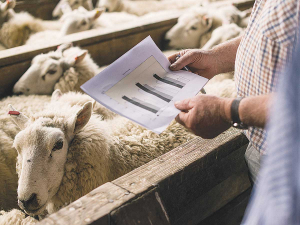'Living labs' to tackle emissions
Living labs that bring together expertise at locations around New Zealand are among potential solutions identified by researchers to help the country move towards a more climate resilient future.
 The report found that the high level of ingenuity in the rural communities was a key element to their resilience and capacity to overcome movement restrictions and the disruption caused by Covid. Photo: Kieren Scott.
The report found that the high level of ingenuity in the rural communities was a key element to their resilience and capacity to overcome movement restrictions and the disruption caused by Covid. Photo: Kieren Scott.
A new study has found a strong ‘can do’ attitude and cooperative spirit in the agricultural sector were significant factors in minimising losses and uncertainties during the Covid restrictions last year.
The report, co-authored by Lincoln University’s Dr Lei Cong – with contributors from AgResearch, The University of Queensland, NZ Institute of Economic Research, and Plant and Food Research – measured the immediate impacts of Covid-19 restrictions to June 2020 on the Australian and New Zealand agri-food systems and how resilient these systems were.
It found the effects on both countries were broadly similar, with relatively minor economic impacts across the surveyed agri-sector industries.
The report says the high level of ingenuity in the rural communities, both in Australia and New Zealand, was likely a key element to their resilience and capacity to overcome movement restrictions and the disruption of value chains.
“Restrictions and new rules of engagement and interaction were adopted rapidly as ‘people accepted a new reality and adapted to it’.”
According to the report, the agricultural sectors in both countries “assimilated the many ‘unmanageable disruptions’, such as the loss or disruption to export markets and short supply of inputs. This created impetus for diversifying markets and strengthened business cases for value-adding and local manufacturing.”
It also suggests that this resilience emerged from a combination of the agri-sector industries having relatively high technology, being well connected/networked and having some experience of prior shocks – as well as being well supported, primarily logistically, by their governments.
“Agricultural producers in Australia and New Zealand are well organised and business-oriented, and thus had the right structures and sufficient financial backing to manage through a pandemic,” the report states. “Product demand was maintained domestically due to income support, while export markets remained fairly constant.”
It also noted that some important lessons – such as the need to upskill young people in rural areas and control or reverse the negative rural migration, the need to diversify export markets, as well as the need to plan for the ‘unplannable’ to deal with the next ‘Black Swan’ event.
The researchers conducted 44 interviews and had 321 responses to the survey with similar numbers of responses from non-farmers across the two countries. They had about twice as many responses from farmers in New Zealand than in Australia.
Bankers have been making record profits in the last few years, but those aren’t the only records they’ve been breaking, says Federated Farmers vice president Richard McIntyre.
The 2023-24 season has been a roller coaster ride for Waikato dairy farmers, according to Federated Farmers dairy section chair, Mathew Zonderop.
Ministry for Primary Industries (MPI) director general Ray Smith says job cuts announced this morning will not impact the way the Ministry is organised or merge business units.
Scales Corporation is acquiring a number of orchard assets from Bostock Group.
Family and solidarity shone through at the 75 years of Ferdon sale in Otorohanga last month.
The Ministry for Primary Industries (MPI) has informed staff it will cut 391 jobs following a consultation period.

OPINION: This old mutt well remembers the wailing, whining and gnashing of teeth by former West Coast MP and Labour…
OPINION: Your canine crusader gets a little fed up with the some in media, union hacks, opposition politicians and hard-core…